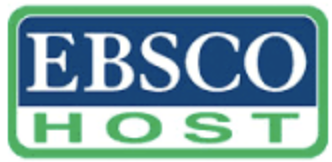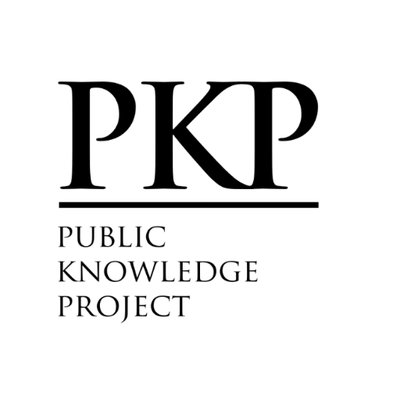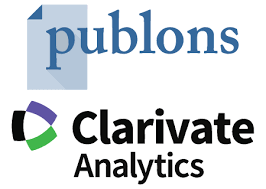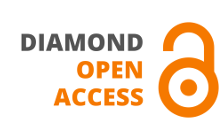Female entrepreneurship in Mali: case of commune I of the district of Bamako
DOI:
https://doi.org/10.59051/joaf.v11i1.342Keywords:
Female Entrepreneurship- Female Entrepreneur- Motivation- Financing-DifficultyAbstract
The objective of this article is to contribute to the body of knowledge of female entrepreneurship in Mali. Thus, we investigated female entrepreneurship in the commune I of the district of Bamako in Mali with the following objectives: the study of the individual characteristics of women entrepreneurs, their motivations and the difficulties they encounter. Through a quantitative method, a questionnaire was submitted to 52 women entrepreneurs in commune I of the district of Bamako. Finally, 51 questionnaires were usable. After analyzing the data using the SPSS software, the results show that the female entrepreneur in commune I of the district of Bamako works in the informal sector in small businesses and does general trade as main activity. When she is married, she has the support of her husband. She financed her business with the support of the parents and practices necessity entrepreneurship.
On the other hand, access to finance remains the greatest difficulty when setting up a business. Marketing and communication issues are the main difficulties in running the business.
Downloads
References
Agence pour la Promotion des Investissements au Mali, API MALI (juin 2017): Appui à la mise en œuvre du régime de l’entreprenant et mise en œuvre de la création sous seing privé pour l’PAI-Mali, rapport final 158 p.
Arasti, Z. (2008). L’entrepreneuriat féminin en Iran: les structures socioculturelles. Revue libanaise de gestion et d’économie, 1(2).
Biloa Fouda, C. N. (2014). Dynamisme entrepreneurial des femmes camerounaises: études de cas de développement d'entreprise (Doctoral dissertation, Bordeaux).
Belcourt (1991) Belcourt, M. Burke, J. Hélène Lee-Gosselin " Une cage de verre : les entrepreneures au Canada" CCCSF, Ottawa 1991,101 p.
Boussetta, M. (2011). Entrepreneuriat féminin au Maroc: environnement et contribution au développement économique et social. Dakar, Investment Climate and Business Environment Research Fund. Report No. 10/11
Brush, C. G. (1992). Research on women business owners: Past trends, a new perspective and future directions. Entrepreneurship: Theory and Practice, 16(4), 5-31.
Brush, C.G. (2006), « Women entrepreneurs : A research overview », The Oxford handbook of entrepreneurship, eds., M. Casson, B.Yeung, A. Basu, and N. Wadeson, 611-28. Oxford : Oxford University Press.
Bureau International du travail (2013), Mesurer l’informalité: Manuel statistique sur le secteur informel et l’emploi informel 384 p.
Carrier, C., Julien, P. A., & Menvielle, W. (2006). Un regard critique sur l'entrepreneuriat féminin: une synthèse des études des 25 dernières années. Gestion, 31(2), 36-50.
d’Andria, A., & Gabarret, I. (2016). Femmes et entrepreneurs: trente ans de recherches en motivation entrepreneuriale féminine. Revue de l’Entrepreneuriat, 15(3), 87-107.
De Carlo, James F., et Paul R. Lyons, "A Comparison of Se1ected Persona1
Characteristics of Minority and Non-Minority Fema1e Entrepreneurs",
Academy of Management Proceedings, (1979), 369-373
Filion, L. (1997). Le champ de l'entrepreneuriat : historique, évolution, tendances. Revue internationale P.M.E., 10 (2), 129–172.
Fouda, C. N. B. (2014). Dynamisme entrepreneurial des femmes camerounaises: études de cas de développement d'entreprise (Doctoral dissertation).
Gbaguidi L., Bio N’Goye C. G., Djodjo G. E. ; (2017), motivations intergénérationnelles des femmes entrepreneures : étude de cas au Bénin en Afrique de l’Ouest, XXVIe Conférence Internationale de Management Stratégique Lyon 7-9 juin 2017
GEM (2004). Report on women and entrepreneurship, Global Entrepreneurship
Monitor
Ghiat, P. B. (2013) Contraintes socioculturelles des femmes entrepreneures en Algérie.
Gundry L., Ben-Yoseph M., M. Posig (2002), “Contemporary Perspectives on Women’s Entrepreneurship: A Review and Strategic Recommendations”, Journal of Enterprising Culture, vol. 10, n°1, pp. 67-86
Groupe de Travail sur l’Entrepreneuriat Féminin (1997), Entreprendre au féminin Québec, 40 pages.
Helms, M. (1997.) Women and Entrepreneurship: The Appealing Alternative. Business Perspectives, 10(1), 16-19.
Hien, F. K. (2002). L'entrepreneuriat feminin au Burkina Faso: une etude exploratoire (No. 200214). University of Groningen, Centre for Development Studies (CDS).
Hisrich R.et C.G. Brush. The woman entrepreneur: management skills and business problems. Journal of Small Business Management, 1984.
Institut National de la Statistique du Mali (Décembre 2012) Recensement Général de la Population et de l’Habitat du Mali, analyse des résultats définitifs, thème Urbanisation (RGPH-2009) 57p.
Kounta, S. A. (1997). Caractéristiques de l'entrepreneurship féminin au Mali. Université du Québec à Chicoutimi.
Louhab, S., Tighilt, S., & Akerkar, A. E. (2016). L'entrepreneuriat feminin en Algerie : motivations et contraintes, cas de la région d’Akbou (Doctoral dissertation, Université de bejaia)
Moilim, R. A. (2018) L’entrepreneuriat féminin aux Comores : des opportunités à exploiter pour le cas de l’Ile de Ngazidja, 6èmes Journées Scientifiques Internationales sur l’Entrepreneuriat en Algérie (27, 28 et 29 Novembre 2018), thème : l’entrepreneuriat : Opportunités, contexte et mise en œuvre
Ministère de l’Economie et des Finances du Mali (Mai 2019) Cadre Stratégique pour la Relance Economique et le Développement Durable (CREDD 2019-2023)
Mulu-Mutuku, M., Odero-Wanga, D., & Ali-Olubandwa, A. (2015). Female Entrepreneurship in Kenya: How do Female Micro-Entrepreneurs Learn to be Entrepreneurial?. statistics, 2(1).
Onibon, D. ; Edon, C. (2015). Dynamique de l’entrepreneuriat feminin au Benin. Journal de la Recherche Scientifique de l’Université de Lomé, 17(2), 159-179.
Rapport OCDE Istanbul, (2004) « L’Entreprenariat féminin : questions et actions à mener » 75p.
Rapport OCDE Istanbul, (2004) « Encourager l’entreprenariat en tant que moteur de la croissance dans une économie mondialisée » 72p.
Rachdi, F., & Nice, E. D. H. E. C. (2006). L’entrepreneuriat féminin au Maroc: une étude exploratoire. Laboratoire ERMMES (Toulon), EDHEC Nice France.
Rachdi F. (2016), l’entrepreneuriat féminin au Maroc : une approche par le réseau personnel, thèse pour l’obtention du Doctorat en Sciences de Gestion au groupe Institut Supérieur de Commerce et d’Administration des Entreprises, Centre des Etudes Doctorales en Gestion
Raveleau, B. (2008) L’entrepreneuriat féminin dans l’arrondissement de Cholet.
Schumpeter, J.A. (1928), “Der Unternehmer”, in Ludwig Elster et al. (Eds.) (1928) Handwörterbuch der Staatswissenschaften (4e édition : Jena 1928 : 483). Référence dans : Hartmann, H. (1959) “Managers and Entrepreneurs : A Useful Distinction”, Administrative Science Quarterly, vol. 3, no 3, p. 429-451.
Saleh L. (2011) L’intention entrepreneuriale des étudiantes : cas du Liban. Gestion et management. Thèse de Doctorat ès Nouveau Régime Sciences de Gestion Université Nancy 2
Saleh, L. (2011). L’intention entrepreneuriale des étudiantes: cas du Liban. Nancy, Université Nancy, 2.
Schreier, James W., The Female Entrepreneur, A Pilot Study (Working Paper, Center for Venture Management, Mount Mary College, 1975).
Schwartz, Eleanor B., "Entrepreneurship: A New Female Frontier", Journal of Contemporary Business, (Hiver 1976), 47-76.
Simen, S., & Diouf, I. D. (2013). Entreprenariat féminin au Sénégal : vers un modèle entrepreneurial de «nécessité» dans les pays en développement?.
Stratégie Nationale de Promotion de l’Entrepreneuriat Féminin (SNPEF) 2016-2025 (juin 2015) Burkina Faso 60 p.
Yunus, M. (2007), « The Nobel Peace Prize 2006 Nobel Lecture », Law and Business Review of the Americas, 13(2) : 267–275
Zizi, G. T. ; Masambam Lulendo Mpanda, V. 2019. « Typologie des femmes entrepreneures en République Démocratique du Congo », dans Enjeux et perspectives économiques en Afrique francophone (Dakar, 4 – 6 février 2019). Montréal : Observatoire de la Francophonie économique de l’Université de Montréal, 224-250 pages.
Webographie
https://maliactu.net/mali-statistiques-des-emplois-crees-des-demandes-et-offres-demplois-pour-2014-la-directrice-nationale-de-lemploi-revele-que-32-618-emplois-ont-ete-crees/ consulté le 06/09/2019
https://fr.wikipedia.org/wiki/Entrepreneuriat consulté le 07/10/2019
http://malijet.com/la_societe_malienne_aujourdhui/interview_mali/179807-fafe-la-directrice-se-prononce-sur-les-acquis.html consulté le 08/10/2019
http://maliactu.info/interviews/le-fafe-pour-appuyer-lautonomisation-de-la-femme-malienne consulté le 08/10/2019
http://niarela.net/interviews/madame-kante-fatoumata-diankoumbadirectrice-du-fafe-nous-voulons-juste-une-egalite-de-chance-devant-les-postes-nominatifs-et-electifs consulté le 08/10/2019
Organisation Internationale du Travail, (2016). Le développement de l’entrepreneuriat féminin https://www.ilo.org/wcmsp5/groups/public/---ed_emp/---emp_ent/---ifp_seed/documents/publication/wcms_183754.pdf consulté le 04/11/2019
https://www.france24.com/fr/20180927-creatrices-entreprises-femmes-africaines-tete-entrepreneuses-afrique consulté le 04/11/2019
http://www.publishingindia.com/GetBrochure.aspx?query=UERGQnJvY2h1cmVzfC8yMzk4LnBkZnwvMjM5OC5wZGY= consulté le 14/11/2019
https://www.oecd.org/fr/csao/publications/42358563.pdf consulté le 02/12/2019
Downloads
Published
How to Cite
Issue
Section
License
Copyright (c) 2020 Silamakan KANTE

This work is licensed under a Creative Commons Attribution-NonCommercial-NoDerivatives 4.0 International License.
Authors who publish with this journal agree to the following terms:
- Authors retain copyright and grant the journal right of first publication with the work simultaneously licensed under a Creative Commons Attribution License that allows others to share the work with an acknowledgement of the work's authorship and initial publication in this journal.
- Authors are able to enter into separate, additional contractual arrangements for the non-exclusive distribution of the journal's published version of the work (e.g., post it to an institutional repository or publish it in a book), with an acknowledgement of its initial publication in this journal.
- Authors are permitted and encouraged to post their work online (e.g., in institutional repositories or on their website) prior to and during the submission process, as it can lead to productive exchanges, as well as earlier and greater citation of published work (See The Effect of Open Access).






















